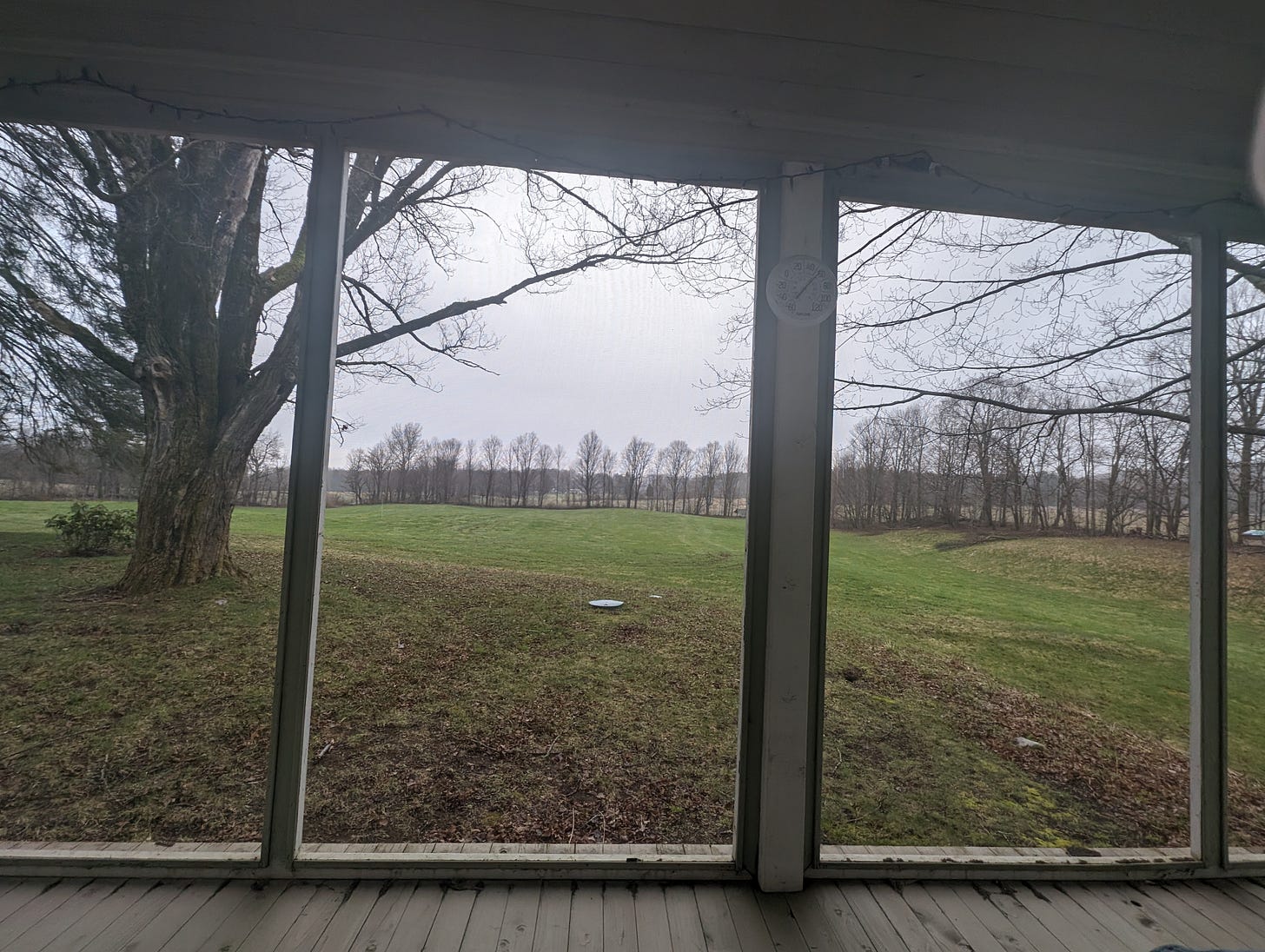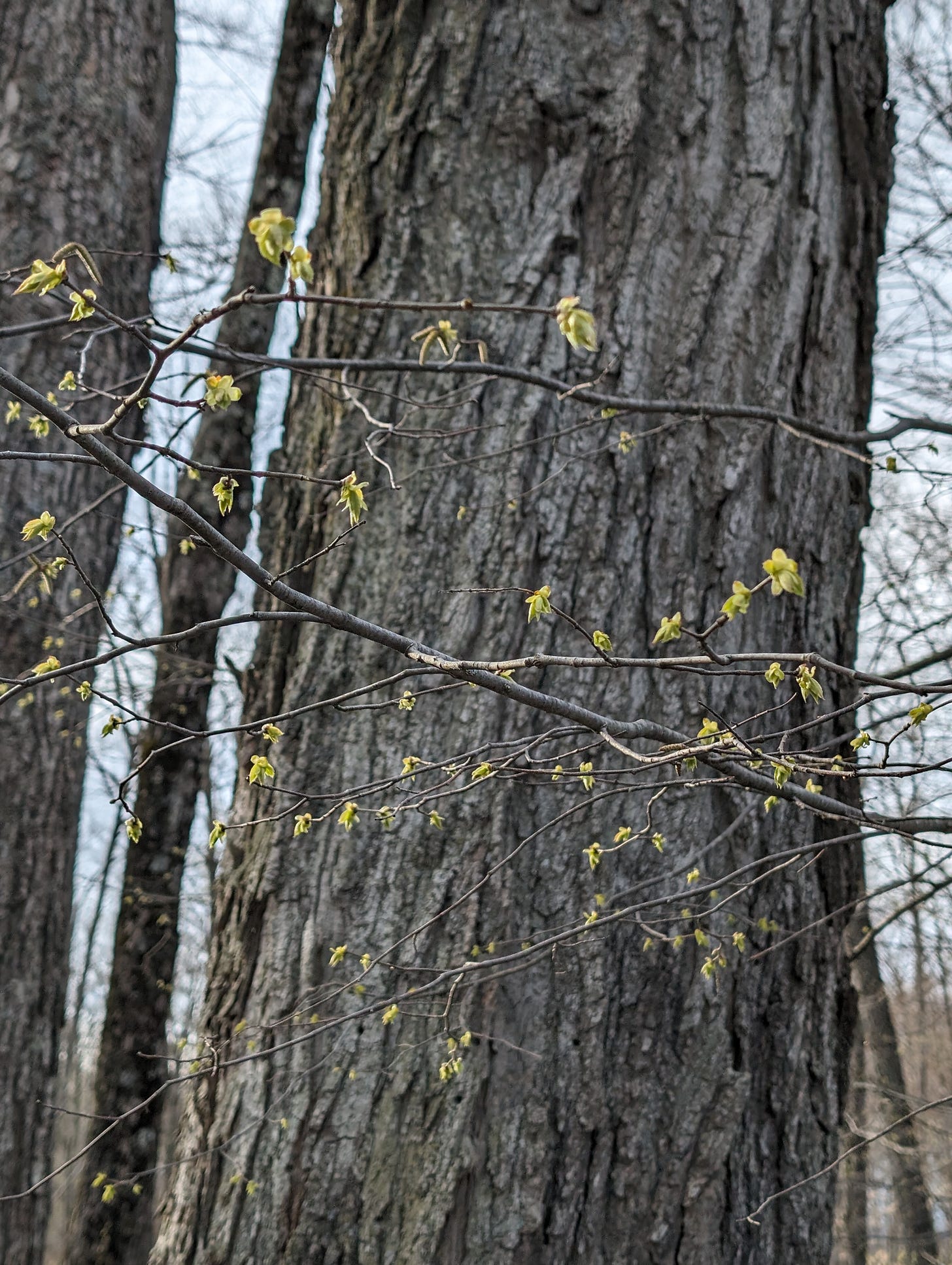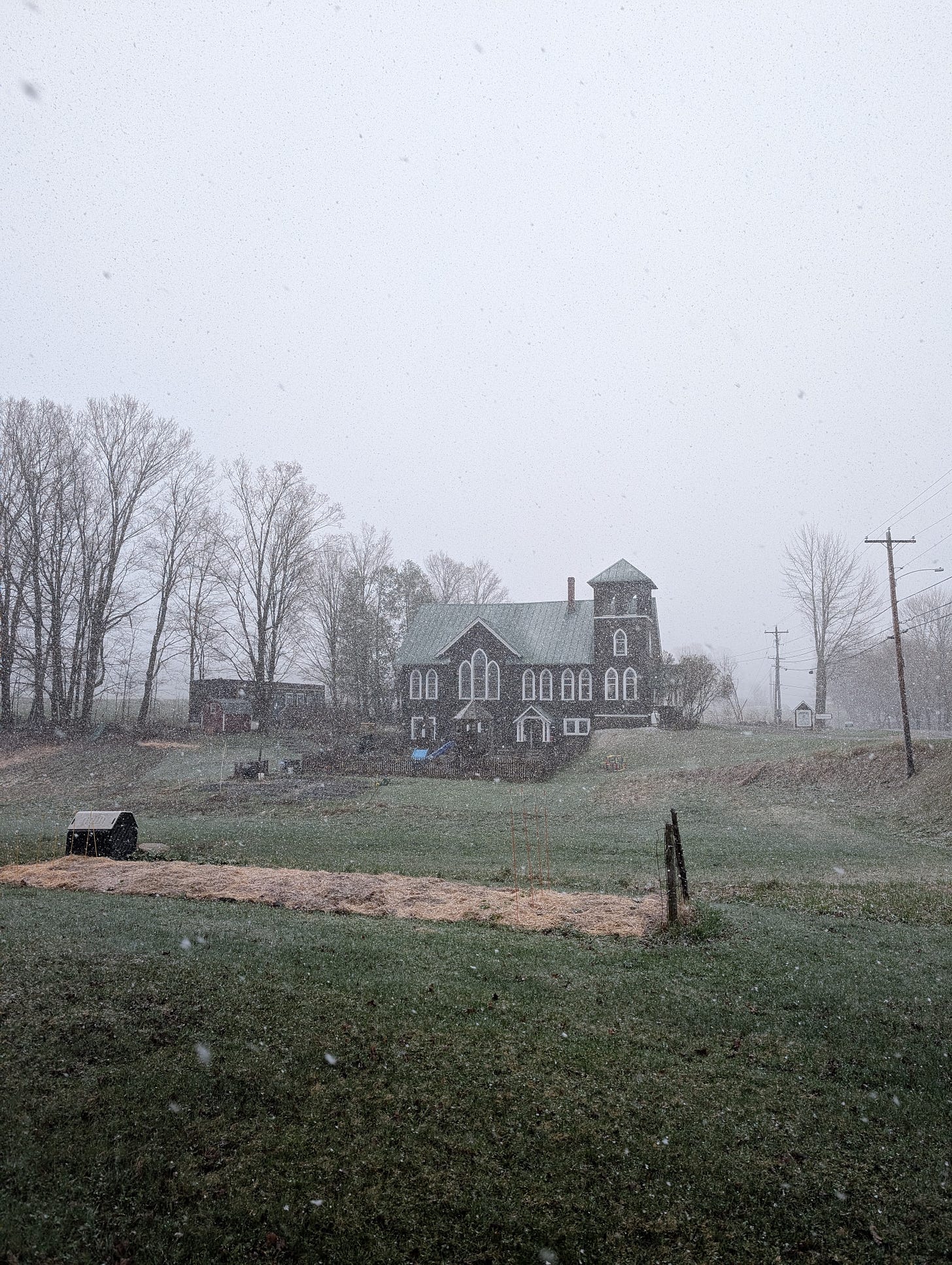The Music of Doubt
Doubting Thomas in the Second Sunday of Easter
Thomas (who was called the Twin), one of the twelve, was not with them when Jesus came. So the other disciples told him, “We have seen the Lord.” But he said to them, “Unless I see the mark of the nails in his hands and put my finger in the mark of the nails and my hand in his side, I will not believe.”
A week later his disciples were again in the house, and Thomas was with them. Although the doors were shut, Jesus came and stood among them and said, “Peace be with you.” Then he said to Thomas, “Put your finger here and see my hands. Reach out your hand and put it in my side. Do not doubt but believe.” Thomas answered him, “My Lord and my God!” Jesus said to him, “Have you believed because you have seen me? Blessed are those who have not seen and yet have come to believe.”
John 20:24-29
Last week on Easter we had such a wonderfully musical service. I talked about how the resurrection is music, and how Jesus Christ is, himself, the Music of life—a spiritual and physical reality, from vibrations to beauty. But what happens if we don’t initially hear the music? What does God do with our inability to hear?
Enter “Doubting Thomas.” Kind of an unfortunate personal brand.1 Let’s give him a break for a second: after the resurrection, Thomas isn’t there for the first appearances of Jesus, doesn’t see the tomb himself, and it sounds like all his friends have just lost their minds. He’s not going to just let go of his rational skepticism, after all, that’s part of what makes him who he is. So he says, “Sorry guys, I need to see those holes.” And eventually, Jesus appears again to say, “Deal.” Once he sees the wounds, Thomas can’t help but cry, “My Lord and my God.”
We hear this story every year in our church calendar, right after Easter, and it is an important one for all of us who not only sometimes feel doubt, but also for all of us who feel the pressure to be perfect. Part of the good news has always been that God will take our imperfection and weave it into something even more perfect. We aren’t always going to say the perfect Christian thing or have the perfect feelings like an “emotional orthodoxy,” but God will still use us. This can be very challenging for us Presbyterians and our love not only for “all things bright and beautiful,” but all things “decently and in order” (1 Cor 14:40).2
Two things made me think of perfectionism this week.
One: I was doing the annual rite of picking up the sticks and limbs that had fallen in our yard over the winter, and it got me thinking about lawn care in general. There is a whole spectrum of it across our great nation; I’ve lived in places where the lawns were barely maintained, with just sprawling overgrown weeds of all kinds, where you weren’t sure if someone lived there, and then were mildly horrified when you saw they did. I’ve also lived in apartments where I didn’t even have a lawn. Neither’s great. But also, I’ve been in places where every single lawn tried to be absolutely perfect, where every leaf had to be exactly where it needed to be, like a whole neighborhood was trying to manicure the wildness out of life. Don’t get me wrong, stewarding whatever plot of earth we have is a good thing, and I often feel guilty that I haven’t done enough. But there is also a tyranny of our perfectionism that we can impose on God’s creation that God doesn’t ask of us.
One reason I love Vermont is that, of all the places I’ve lived, most people here strike a great balance of caring for what we’ve been given while also letting the perfect imperfection of wild nature flourish. My grandfather was a landscape architect (with a sprawling backyard nursery and also-sprawling-with-dusty-old-receipts-from-the-sixties home office), and to me, the best landscaping is not a tyranny of human perfection, but curates wildness in a way that lets the freedom of wildness be loved into God’s beauty.
I see something like that in this story of Jesus and Thomas. Jesus wants Thomas to believe, to hear the music of Life, but he won’t do so through tyranny. He does so in a way that lets the freedom of Thomas’ wild human nature be loved into God’s beauty. Thomas isn’t perfect. No, he’s better than perfect: he’s loved by God in his imperfection.
The second way I’ve been thinking about perfectionism this week is how it shows up in Christians, especially in explicitly Christian art—music, movies, you name it. A long-standing topic of conversation among several of my friends is why it is so hard to make good Christian art.3 I think part of it is because we put so much pressure on ourselves to be perfect in a way God doesn’t, to impose the tyranny of our perfection onto the Christian story, sometimes in a way that removes some of the wildness that makes for good art and the living gospel, wildness that is just part of the creation that God made us. I won’t pick on them, but I even heard a song from a Christian artist this week about overcoming perfectionism, yet done in the most highly-produced way, meticulous over every detail, then expanded into grandeur. It’s like an actor wrote, starred, and directed a movie about overcoming his impulse to see life like a movie (and to be fair, maybe that’s the hidden brilliance in it I couldn’t see).
I know many of us connect to well-produced, thorough, polished art and music. I do too. There is a fine line, for sure, between the vice of “perfectionism” and the virtue of putting in the right amount of work to make something beautiful, just like how some of us put a ton of work into making beautiful lawns. Not only is there nothing wrong with that, but those works glorify God, and I love walking by them season after season.
So maybe the difference is underneath. Maybe it’s when we ask ourselves, who are we really doing it for? Are we making music and curating lawns because we want to live into God’s music, or are we doing it for a perfection that we think we need?
In Christian terms, “magic” is denounced (to simplify) as that which tries to manipulate reality to suit our ends. And this is why, I think, unsatisfying Christian art is too “magical”—it is trying too hard to invent the gospel we’d like to hear, to the point where we manipulate others and reality rather than expressing the full wildness of our humanity with a God who reaches out to us in our wildness and loves us into being.
One reason I have enjoyed listening to people in our grief groups and going to different recovery and 12-step groups over the years is that these are places where you see God in the wildness of our humanity. God didn’t need Thomas to raise Jesus from the dead, he just needed him to be a human being. God invites all of us real, imperfect human beings to live in the flourishing resurrection reality here since before the world began. And he will keep trying anything he can to help us hear the music, no matter how stubborn we are.
If the disciples had it their way, there would be no “Doubting Thomas” story. The lawn would look perfect, the music wouldn’t have a single wrong note, and Thomas would have been a perfectly orthodox Christian before Christ’s tomb clothes were folded up into a neat pile of laundry.
But it took time, because Jesus Christ doesn’t manipulate. He doesn’t enforce a tyranny of perfection. He invites Thomas into his Music through his scars. In letting us be wild, emotionally unorthodox, and free, God uses our freedom and even our sin to make his perfecting love of the world even richer, bringing our sin into his story. He weaves it all, and nothing is left unwoven. We can’t see the fullness of the tapestry or hear every instrument in every part of the movement of his music, but it is all playing together.
So then, why believe? If we can be imperfect sinners and doubting and all that, why bother believing? We can’t force ourselves to believe or not anyway, so why does it matter?
Maybe “belief” is the best word we have for saying “yes” to living in God’s music; belief is saying “yes” to God’s dance party. Like all his other friends, and like all of us, Thomas is being invited to live in the music of the resurrection and the music of grace. We aren’t the author of that grace, nor are we the author of music; none of us really “make music” even though we call it that. We didn’t invent the atoms that make up steel strings, or brass pipes, or the air that blows through them or the vibrations that create sound. By the grace of God, those of us who play instruments just kept paying attention until we learned how to play along to the truths of music God had established before the dawn of time. Eventually, you start singing out loud in the car and the shower, even when there’s no music playing, because the music of God is in your heart.
I think that’s what believing in Jesus is like—learning how to sing in the shower. Because when Jesus says, “Blessed are those who have not seen and yet have come to believe,” it’s like, “Blessed are you who don’t even need someone to play the music because you can hear it in your head. Blessed are you who can sing in the shower.”
But even though Thomas didn’t start off singing in the shower, he was still blessed, too. For sure, blessed are you can believe and live and be a great Christian without any more proof or experience or anything. You are already living in the gift of God’s grace. But also, O mortal, your doubt, your wounds, your imperfections and impurities, your distance from God, eventually, God will gather it all in and bring it all together and use it for his goodness. Because like he did for his brother Thomas, Jesus is always showing up where we really aren’t perfect, where we aren't properly performing any orthodoxies, and maybe aren’t fully buying into the Christian vision that day. He still comes and shows us what it looks like. And what does it look like? The holes in his hands.
As the Burts of At Home with the Lectionary pointed out.
I’m kind of surprised isn’t a Presbyterian hymn.







